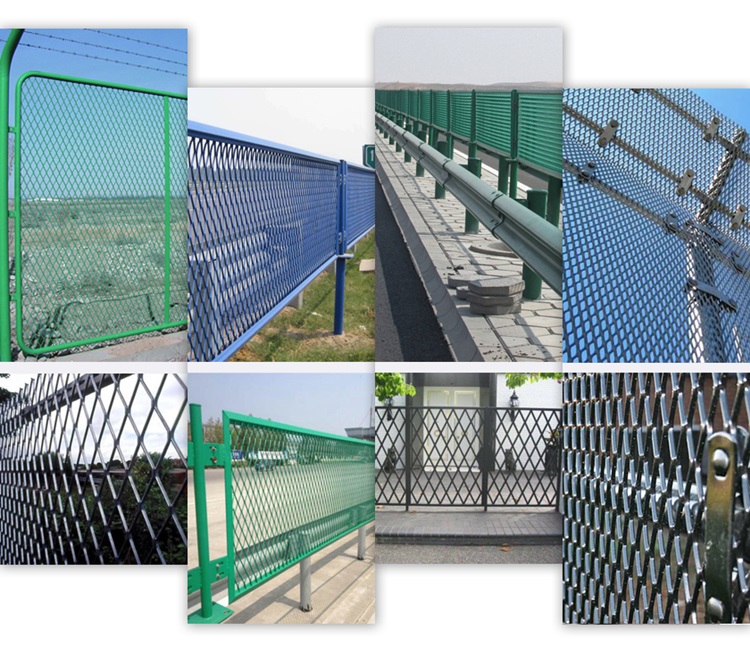Samh . 10, 2024 03:01 Back to list
Expanded Metal Mesh CE Certification for Enhanced Quality and Safety Standards
CE Certification for Expanded Metal Mesh Understanding Its Importance and Process
Expanded metal mesh has found its way into various industries due to its unique properties, combining strength, versatility, and aesthetic appeal. From construction and architecture to automotive and manufacturing, this material serves an array of functions. However, to ensure safety, quality, and compliance within the European Union market, CE certification is essential. This article delves into the significance of CE certification for expanded metal mesh, the process involved, and its implications for manufacturers and consumers.
What is Expanded Metal Mesh?
Expanded metal mesh is created by cutting and stretching metal sheets to form a lattice-like pattern. The process results in a material that is lightweight yet exceptionally strong, making it ideal for use in a variety of applications, including security fencing, grating, filtering, and decorative elements. The mesh is available in various materials such as aluminum, steel, and stainless steel, each possessing distinct properties that suit different purposes.
Importance of CE Certification
CE marking indicates a product's conformity with European health, safety, and environmental protection standards. For expanded metal mesh manufacturers, obtaining CE certification is not merely a bureaucratic step; it signifies adherence to rigorous quality and safety standards crucial for market acceptance within the EU.
1. Safety Assurance CE certification assures consumers and businesses that the expanded metal mesh meets essential safety requirements. It emphasizes that the product has undergone necessary testing and evaluation to ensure it does not pose risks, thus fostering trust in its usage.
2. Market Access In the European market, having CE certification is mandatory for many construction-related products, including expanded metal mesh. Without this marking, manufacturers cannot legally sell their products within the EU. Thus, CE certification opens doors to wider markets and enhances competitiveness.
3. Quality Control The certification process encourages manufacturers to maintain high standards throughout their production processes. Regular audits and assessments promote consistency and encourage continuous improvement, leading to better overall product quality.
4. Liability Protection For manufacturers, CE certification can serve as a safeguard against potential legal issues. In the event of product failure or accidents, showing compliance with regulations can provide a level of protection against claims of negligence.
ce certification expanded metal mesh

The CE Certification Process
Gaining CE certification for expanded metal mesh involves several steps
1. Determine Applicable Directives Manufacturers must identify which EU directives apply to their products. This often includes directives related to construction products, machinery, and others relevant to their specific applications.
2. Product Testing The next step is to perform necessary tests to ensure compliance with the relevant standards established by the directives. This may involve assessments of mechanical properties, load-bearing capabilities, and durability.
3. Documentation Manufacturers need to compile a technical file documenting the design, manufacture, and operation of the product. This file includes test reports, production quality control records, and risk assessments.
4. Declaration of Conformity Once all testing and documentation are complete, manufacturers must draft a Declaration of Conformity. This declaration attests that the product complies with all relevant EU regulations and standards.
5. Affix the CE Marking After obtaining the necessary documentation and tests, the final step involves affixing the CE mark to the product. This mark must be visible, legible, and indelible to ensure consumers can identify compliant products easily.
Conclusion
CE certification for expanded metal mesh is not just a regulatory hurdle; it is a vital aspect of ensuring product safety, quality, and acceptance in the competitive European market. By prioritizing CE marking, manufacturers not only enhance their reputation but also protect consumers and promote a culture of safety and excellence in the industry. As the market continues to evolve, the significance of CE certification will likely grow, underscoring the need for adherence to stringent quality standards in producing expanded metal mesh.
-
Durable Hot-Dip Galvanized Farm Field Wire Fence | Farm Security
NewsAug.01,2025
-
Temporary Fencing Solutions-Anping County Xingzhi Metal Wiremesh Products Co.,Ltd
NewsJul.31,2025
-
Hop Dipped Galvanized / PVC Coated Temporary Fence - Anping County Xingzhi Metal Wiremesh Products Co., Ltd.|Durable Temporary Fencing&Cost-Effective Security Solutions
NewsJul.31,2025
-
Hop Dipped Galvanized / PVC Coated Temporary Fence-Anping County Xingzhi Metal Wiremesh Products Co., Ltd|durable temporary fencing&corrosion-resistant solutions
NewsJul.31,2025
-
Temporary Fencing Solutions - Anping County Xingzhi Metal | Galvanized PVC Coated Fences
NewsJul.31,2025
-
358 Anti-Climb Welded Wire Mesh Fence - High Security, Durable
NewsJul.31,2025



